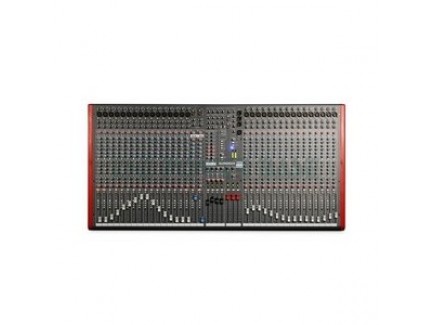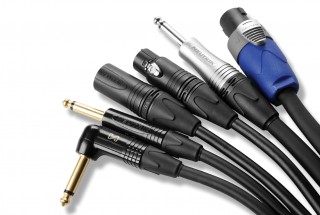32 mono channels
2 dual stereo inputs with 4-band EQ
Neutrik mic XLR
Neutrik 1/4 inch jacks
Channel insert
Super wide gain 'DuoPre' mic line input
4-band EQ with 2 swept mids and in/out switch
Illuminated mute
Sound image pan
Illuminated PFL & peak warning indicator
ALPS 100mm faders
6 auxiliary sends (2 pre, 2 post, 2 pre/post)
4 sub groups fed from each channel
All inputs with level control
12 bar meters
L, R and M main mix outputs
2 matrix sections available; can send output to USB
Individual channel 48V phantom power
Direct output on every mono channel
Peak and signal indication on every channel
Configurable USB stereo audio in/out
Master level controls on all outputs
Easy to use layout – all connections and controls on top surface
USB audio flexibility
Getting audio to and from a computer easily is now a common requirement for live sound and music production. The way this has been implemented on ZED is super-flexible and super-easy! No longer do you need to fiddle around the back of your PC to get to the soundcard inputs, only to find that the levels are all wrong and noisy. Just plug in a USB lead to your ZED, select the USB routing on the mixer and the device on your computer and that's it! CD quality audio to and from your PC or Mac. Switches and connection through jack socket terminals provide different send/return configurations:-
Send options:
Main Mix Left + Right (Post-fade)
Main Mix Left + Right (Pre-Fade)
Auxes 1-2
Auxes 5-6
Matrix 1-2.
Return options:
1) To Playback input
2) To Stereo 3 channel
MusiQ
ZED-436 has a tuned 4-band EQ taken from the acclaimed GL2200 mixer, utilising MusiQ – with optimised slope (or Q factor) for equalising individual instruments.
DuoPre™
Based on the proven pre-amps from the hugely successful PA series, ZED-436 has DuoPre pre-amps, which use a two stage design, with carefully controlled amounts of gain in each stage. When amplifying the signal from the XLR input, the gain range is huge - 69dB of range to be exact - and is very evenly distributed around the gain control, meaning better control of signal level. Most of the gain comes from the first stage, so unwanted noise is kept to a minimum. Line level signals are simply plugged into the second stage of the pre-amp by using the line input jack socket, which has the great advantage of less noise when using the line input and also matching to a higher input impedance.



















